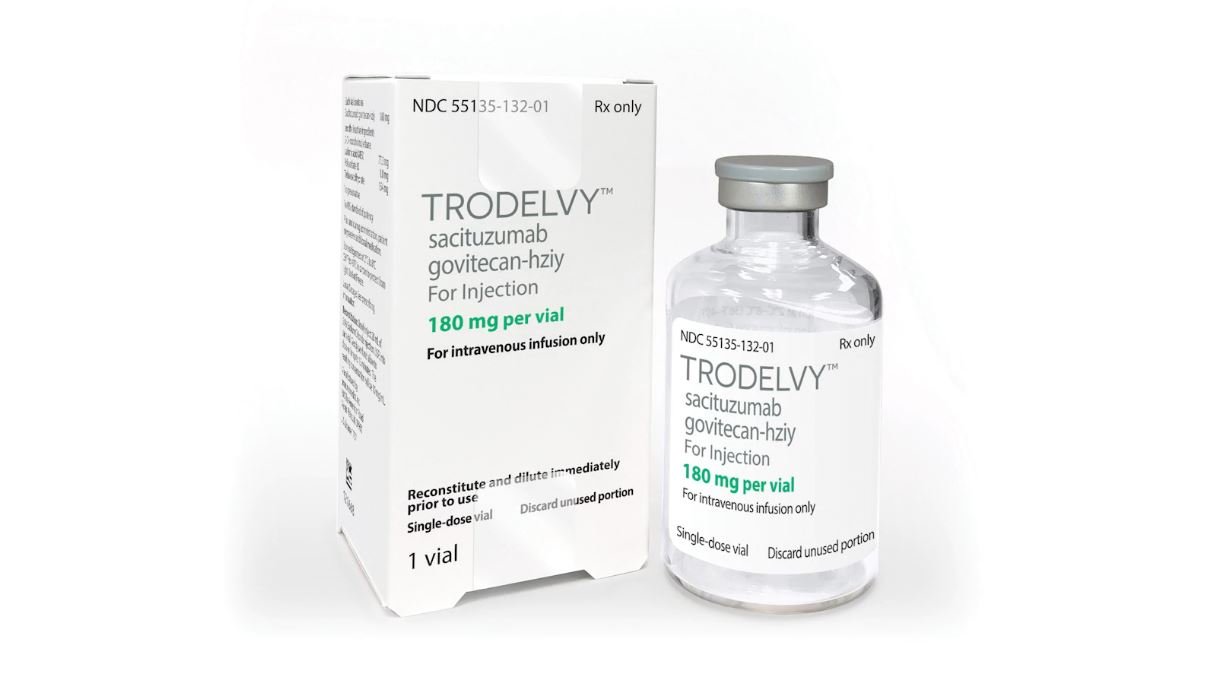ESMO: Trodelvy's overall survival benefit revealed

Prospects for Gilead Sciences' Trodelvy in hormone receptor-positive, HER2-negative metastatic breast cancer continue to improve as data from the TROPiCs-02 trial strengthen, but the jury is still out on what that might mean for the drug commercially.
At this year's ASCO congress, news that Trodelvy (sacituzumab govitecan) failed to have a significant impact on overall survival (OS) in this form of breast cancer weighed heavily on Gilead, as the Trop2-targeting antibody-drug conjugate (ADC) is central to its plans to grow in oncology.
Last month, all that changed with the announcement that the earlier trend towards improved OS in the study had now firmed up and reached statistical significance and, according to Gilead, was "clinically meaningful." The drug had already showed a significant improvement of progression-free survival (PFS).
The data was still under wraps at that time, but has just been revealed in the ESMO congress abstract drop – a 3.2 month improvement over control, compared to 1.6 months at ASCO.
Taken in isolation, that is an important step forward for a sizeable population of breast cancer patients that has few treatment alternatives, and almost certainly strong enough for Trodelvy to secure regulatory approvals, adding to its current use in triple-negative breast cancer (TNBC) and urothelial cancer.
At one point, analysts were predicting that approval in HR-positive, HER2-negative breast cancer would unlock an additional $900 million in sales for Trodelvy, which brought in $305 million in the first half of this year.
That was before AstraZeneca and Daiichi Sankyo's HER2-targeting ADC Enhertu (trastuzumab deruxtecan) aced the DESTINY Breast-04 study, which recruited a patient population with quite a lot of overlap with those enrolled in TROPiCS-02.
The Enhertu trial recruited patients with HR-positive, HER2-low tumours – some of whom would have been considered HER2-negative and eligible for inclusion in Gilead's study – and improved median OS by more than six months.
It's always tricky to draw comparisons between trials, however, and there will no doubt be lively debate on the potential role for Trodelvy in this type of breast cancer when the data is presented to oncologists at ESMO later today.
One consideration is whether patients in TROPiCS-02 were sicker at enrolment than those in DESTINY Breast-04.
"It is outstanding to see a clinically meaningful survival benefit of over three months for patients with pre-treated HR+/HER2- metastatic breast cancer," commented Hope Rugo, of the University of California San Francisco Comprehensive Cancer Centre.
"Nearly all patients with HR+/HER2- metastatic breast cancer will develop resistance to endocrine-based therapies, even in combination with targeted agents, so these data are welcome news for the breast cancer community," she added.













